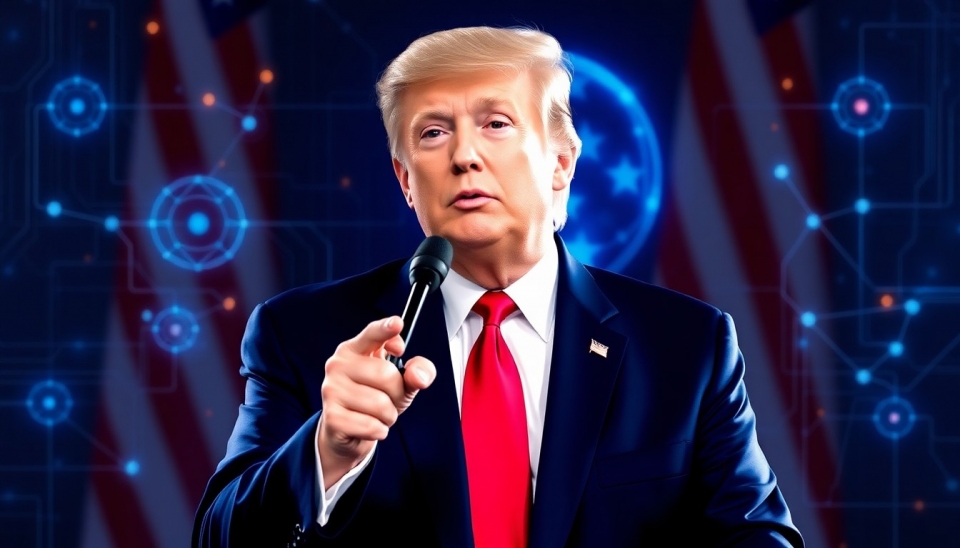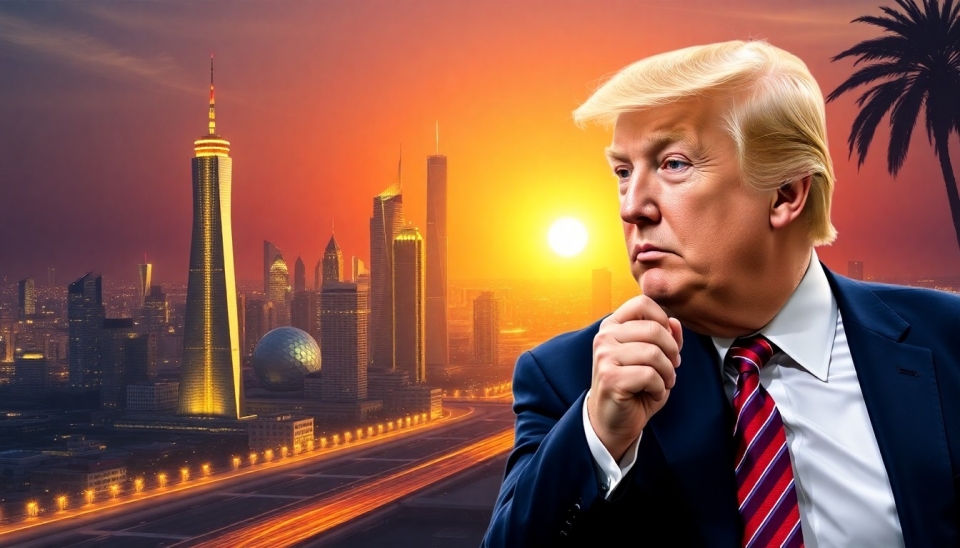
In a bold and audacious maneuver, former President Donald Trump is setting the stage for a significant influence on the future of artificial intelligence (AI) development in the United States. As the race to harness AI technology intensifies, Trump’s venture offers an intriguing blend of ambition and governance, positioning him at the forefront of this technological frontier.
Amid growing concerns over the ethical implications and competitive edge in AI, Trump’s initiative seeks to promote innovation while simultaneously addressing regulatory frameworks that may hinder progress. This strategic gamble is viewed as a calculated response to Democrats who have often championed stringent regulations on technological advancements. The objective? To mold a comprehensive policy that champions growth without sacrificing safety and ethical standards.
Key to Trump's vision is the establishment of a task force aimed at facilitating AI research and development. This group will focus on collaboration between private sectors and governmental agencies, ensuring that the U.S. remains a leader in the global AI landscape. Notably, the task force will emphasize workforce training and education to prepare citizens for the changes brought about by AI technologies.
Experts suggest that Trump's approach may appeal to a wide spectrum of voters, especially those who feel threatened by automation and the shifting job market. By promoting AI as a tool for enhancing job creation and economic growth, Trump aims to reassure the electorate that technological advancement need not come at the cost of employment.
Furthermore, Trump's plan includes addressing international competition, particularly from nations such as China, which have made significant strides in AI. By positioning the U.S. as a frontrunner in ethical AI development, the initiative also seeks to attract global partnerships and investment, boosting the American economy while maintaining a competitive edge.
Critics are apprehensive, citing past remarks by Trump suggesting a lack of understanding of the complexities associated with AI. As such, some experts are left questioning the effectiveness of his proposed measures. They worry that a focus on rapid development without proper oversight could precipitate unintended consequences, especially where issues of privacy and security are concerned.
Nevertheless, the landscape of AI holds enormous promise, and Trump’s entry into this arena may catalyze important discussions about the balance between innovation and responsibility. His ability to rally support for a unified AI policy could ultimately shape the trajectory of technology in the coming decades.
As Trump continues to navigate this multifaceted issue, the implications of his actions may reverberate far beyond the political sphere, influencing how America engages with technology and addresses the challenges of the future. For now, the technology sector watches closely, aware that the stakes have never been higher in the fight for AI supremacy.
With an evolving narrative around innovation and governance, Trump's commitment to advancing the AI agenda could either bolster or jeopardize the American perception in this critical field, depending on how it unfolds in the coming months.
In conclusion, Trump’s gamble on AI is not merely a personal ambition; it signifies a vital component of his broader strategy that reflects the complexity of the political landscape intertwined with technological advancement. As discussions continue, the future remains uncertain but undeniably charged with potential.
#TrumpAI #ArtificialIntelligence #AIDevelopment #TechLeadership #Innovation #EconomicGrowth #AIRegulation #FutureOfWork #USAICompetition
Author: Liam Carter
